In Libya's conflict economy, migrants are trapped in a system where militias, local authorities, and criminal networks profit from their vulnerabilities. Their journey is marked by abuse and violence. As the EU debates migration policies in the Central Mediterranean, experts question the legality of sea interceptions and offer alternatives. Can the system be reformed, or will smuggling networks continue to thrive in the absence of safe and lawful migration pathways?
"We Syrians are nothing but dollar signs for Libya…when they see us they see a dollar sign on our forehead."
Omar* (name changed upon request), a 37-year-old radiologist, could no longer financially support his family as conflict and economic turmoil continued to devastate his home country of Syria. If he could reach Europe, he could apply for family reunification, allowing his loved ones to finally live in peace.
InfoMigrants met him in February onboard the Geo Barents after he and 133 others were rescued from an overcrowded wooden boat in distress in the Central Mediterranean.
Omar chose the precarious sea crossing because it was the "cheapest" option compared to the irregular border routes through Russia-Finland, Russia-Belarus-Poland, or the Balkan migration route.
"It's difficult to go from Syria to Turkey now, because everyone is going. Just the visa costs 4,000 US dollars and the airplane ticket costs at least 500 dollars," Omar told InfoMigrants. It would have cost 10,000-15,000 dollars to travel irregularly via Turkey, and between 9,000 and 12,000 dollars via Russia, Omar said.
The Central Mediterranean crossing, however, is the deadliest among those routes. At least 1,315 people have died or gone missing in the first half of 2024 with 30,219 in total since 2014, according to figures from the International Organization for Migration's (IOM) Missing Migrants Project.
From organizing the necessary documents, flying to Libya, and using people smugglers to cross the Central Mediterranean Sea, Omar said it cost him between 6,500 to 7,000 dollars. "That is, if you don't have any problems or don't go to any prison." Omar said he paid another 2,200 dollars "just to leave the prison" in Libya. The doctor spent around two months total in the North African country.
"I asked my friend, he told me that maybe you stay just one week, two weeks. He arrived in Italy, he didn't go to the Libya jail," Omar sighed. Before touching down in Libya, he could not have imagined the horrors that would await him.
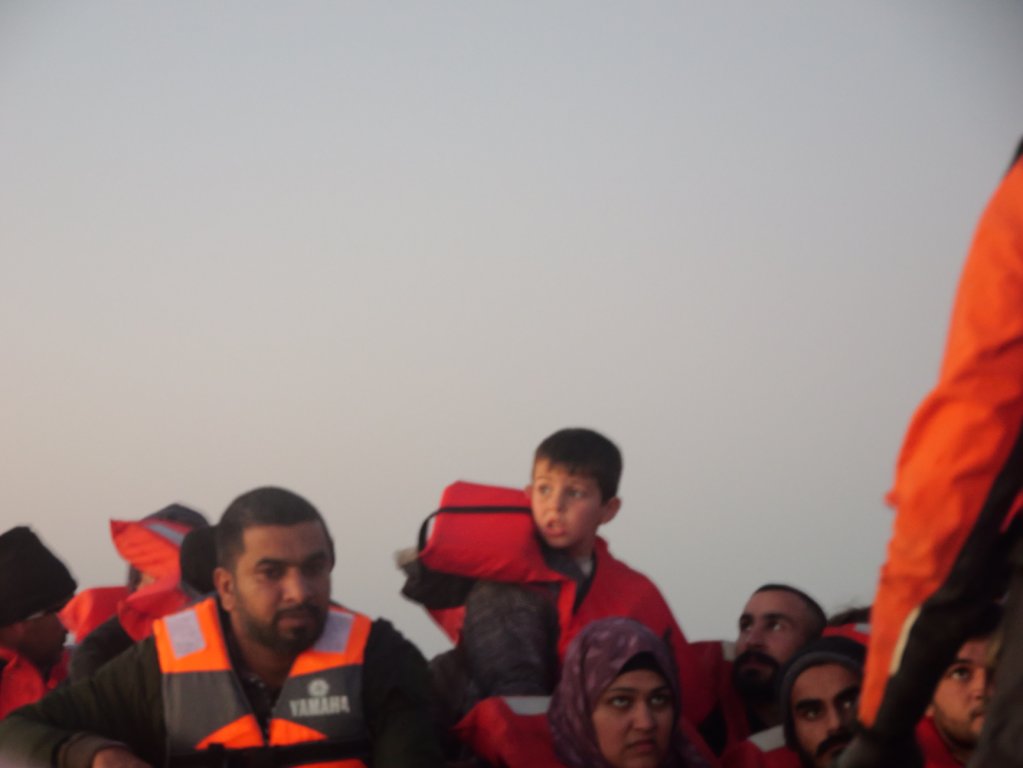
Migrants exploited as commodities endure extortion, abuse, and forced labour
Allison West, a senior human rights legal adviser at the Berlin-based European Center for Constitutional and Human Rights, warns migrants in Libya can be subjected to extortion, abuse and forced labor by criminal networks, militias and state authorities.
"My biggest worries regarding migrants and refugees passing through Libya include the risk of death, enslavement and horrific violence they face along their journey, including in detention centres," West told InfoMigrants.
"The lack of safe and legal pathways for migration and asylum exacerbates the dangers faced by migrants and refugees, pushing them into the hands of actors who treat them as commodities, exploiting their vulnerabilities for profit," she stressed.
In comparison to the other survivors on board the Geo Barents, who attempted to cross the Central Mediterranean an average of six to seven times and spent between 10 days to one year in Libyan detention, Omar made it to Italy on his second sea crossing attempt. The first time he tried with about 50 other Syrians, the motor broke down in the middle of the ocean after they had departed from Sabratha.
"The Libyans came and caught us."
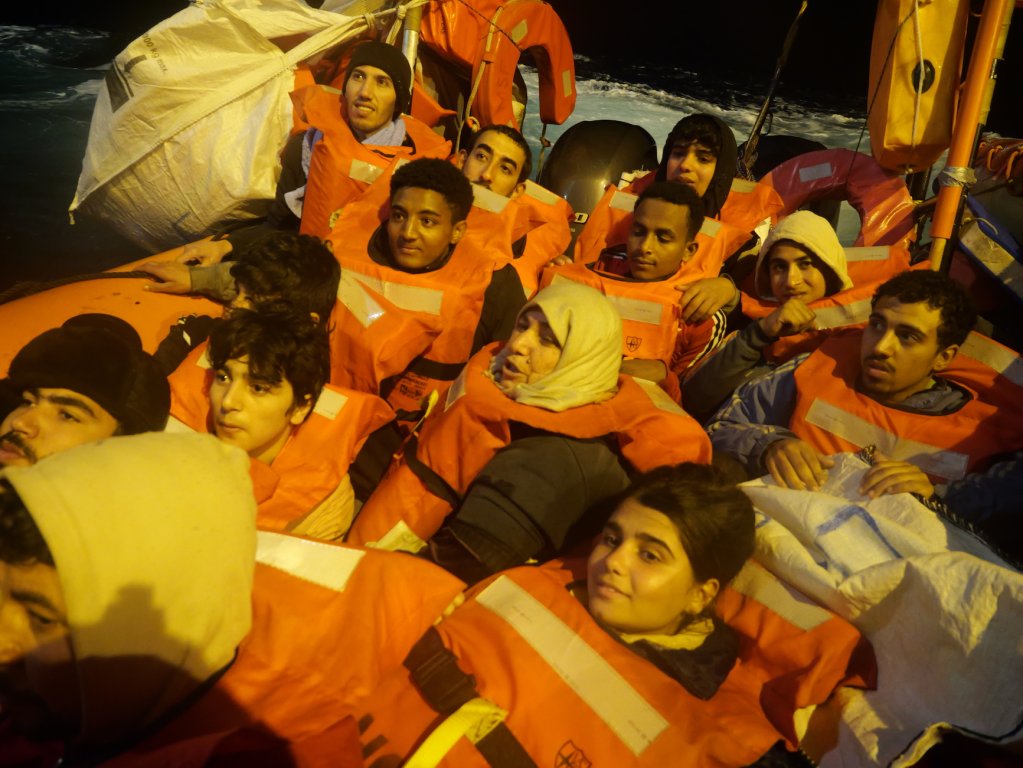
Are migrant interceptions at sea and detention in Libya in accordance with international law?
International maritime and human rights laws require vessels to help anyone in danger at sea, no matter their nationality or status, West from the ECCHR explained.
"Such a rescue operation only terminates when those rescued are disembarked in a place of safety, meaning a place where their lives and human rights can be guaranteed," said West.
The ECCHR considers the EU-backed Libyan coast guard's practice of returning migrants at sea to Libya as 'interceptions rather than rescues,' arguing that Libya is not a safe place.
Once intercepted, migrants are "forcibly returned to Libya and systematically transferred to detention centers, either official or unofficial, where they face a litany of human rights abuses," she said.
Extortion for freedom
Omar explained that he found himself transported into the desert and detained in Bir al-Ghanam following the Libyan interception at sea. Upon arrival, authorities took all the money he had left on him, he said.
According to Omar, he arrived at the prison on December 27, 2023 and remained there until he managed to find a way to pay for his exit after 20 days.
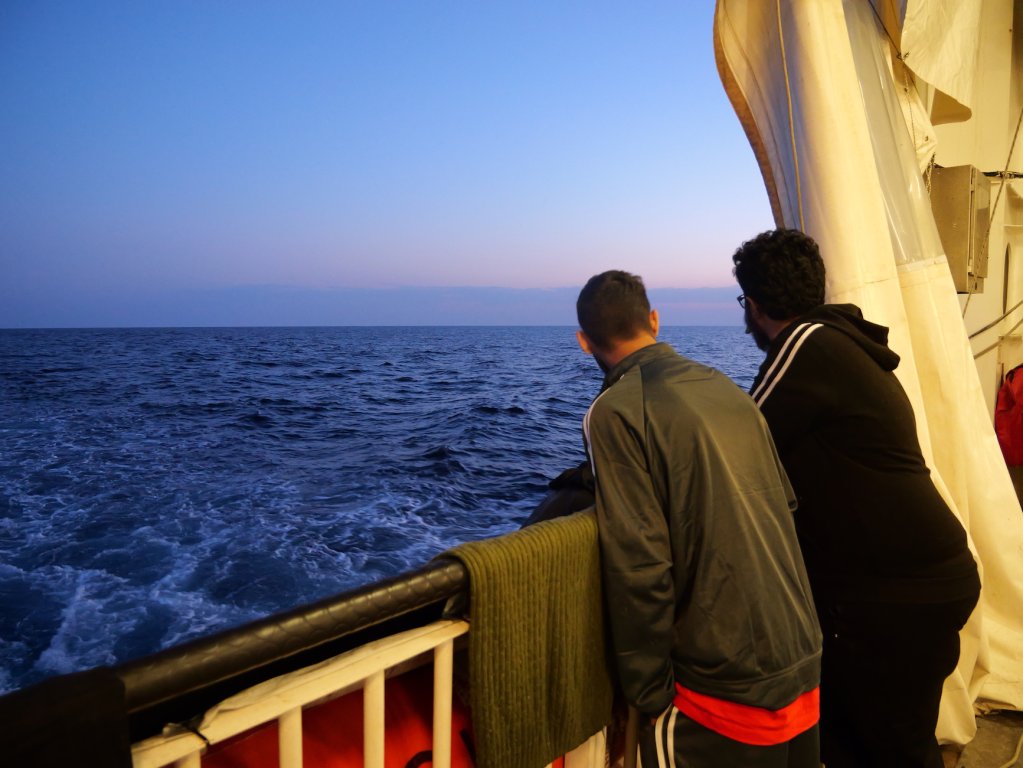
"The prison was very bad, I got sick because there is no sun in this prison — they don't have any humanity, no medicine, no doctors," Omar said, choking back tears. He witnessed other migrants being beaten, while rumors of organ theft targeting asylum seekers circulated throughout the detention center.
"Everything was dark, and I was very scared by anything, I am very scared to try and go to Italy," Omar began to sob. "I saw Syrian people on the third floor. They are maybe between four to six months in this very bad prison. Everyone just goes to the toilet everywhere."
According to Omar, detained migrants had to rely on various networks to pay for their freedom. "If you don't pay the money for this mafia, I will stay here maybe four months, six months, I don't know. The police told us if you don't pay it, you will stay here."
Why migrant abuse persists in Libyan detention
Arbitrary detention, enslavement, murder, torture, rape, sexual slavery, enforced sex work, sexual violence, persecution, and other inhumane acts against migrants and refugees are all well-documented in Libya, West from the ECCHR said.
"As these acts occur in the context of a discernible system of migrant and refugee commodification and abuse in Libya, ECCHR has argued that they amount to crimes against humanity." West added that all individuals regardless of their immigration status have the right under international refugee law to seek asylum and protection from refoulement, which is the process of being returned to a country where they may face persecution or danger – in this case, Libya.
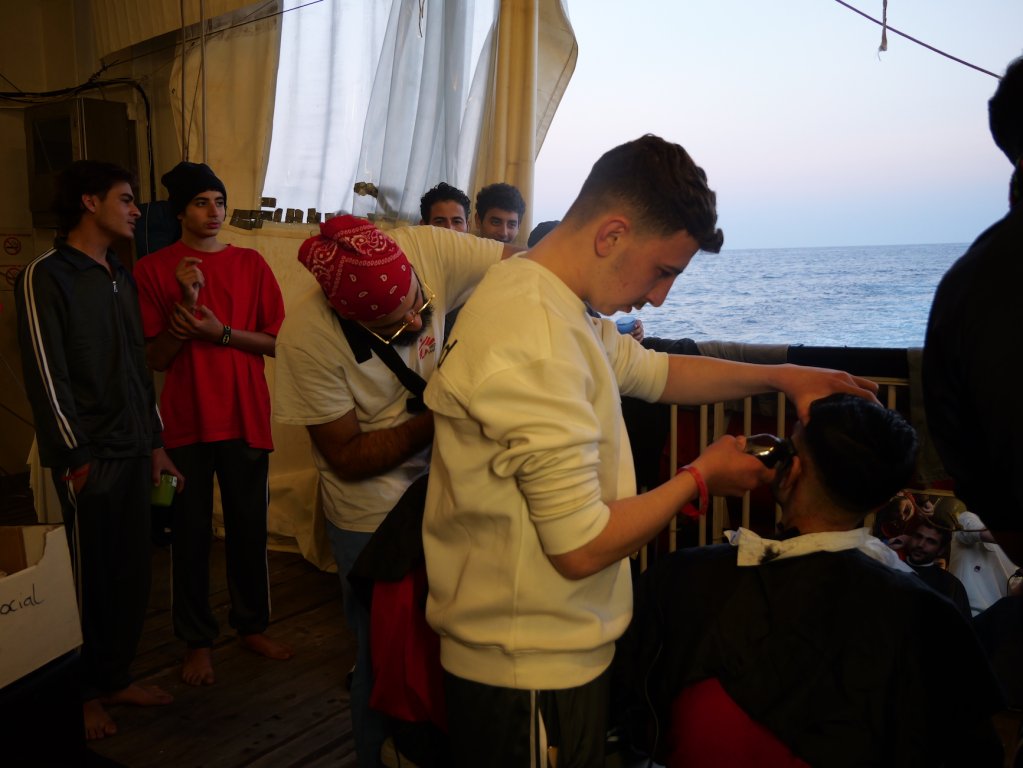
The issue is that "Libya has no asylum legislation or related procedures, meaning there is no way to formally seek protection," West explained. "While the transfer of migrants and refugees to official detention centers is deemed 'legal' under Libyan domestic law, it amounts to arbitrary detention under international law, as people are held for indefinite periods of time with no legal recourse to challenge the basis of their detention or the abuses they endure there."
According to international human rights law, migrants in Libya should be able to access legal representation and proper judicial processes, "but in reality, they often face egregious crimes instead," West said.
'The criminal actor here is the smuggler and not the migrants'
Over the past 30 years, Libya has been an important transit country for irregular migration to the EU.
Though "most countries would consider that an administrative offense, Libyan law provides for them to be detained just on the basis of being an irregular migrant," Claire Healy from the Vienna-based UNODC Observatory on Smuggling of Migrants told InfoMigrants.
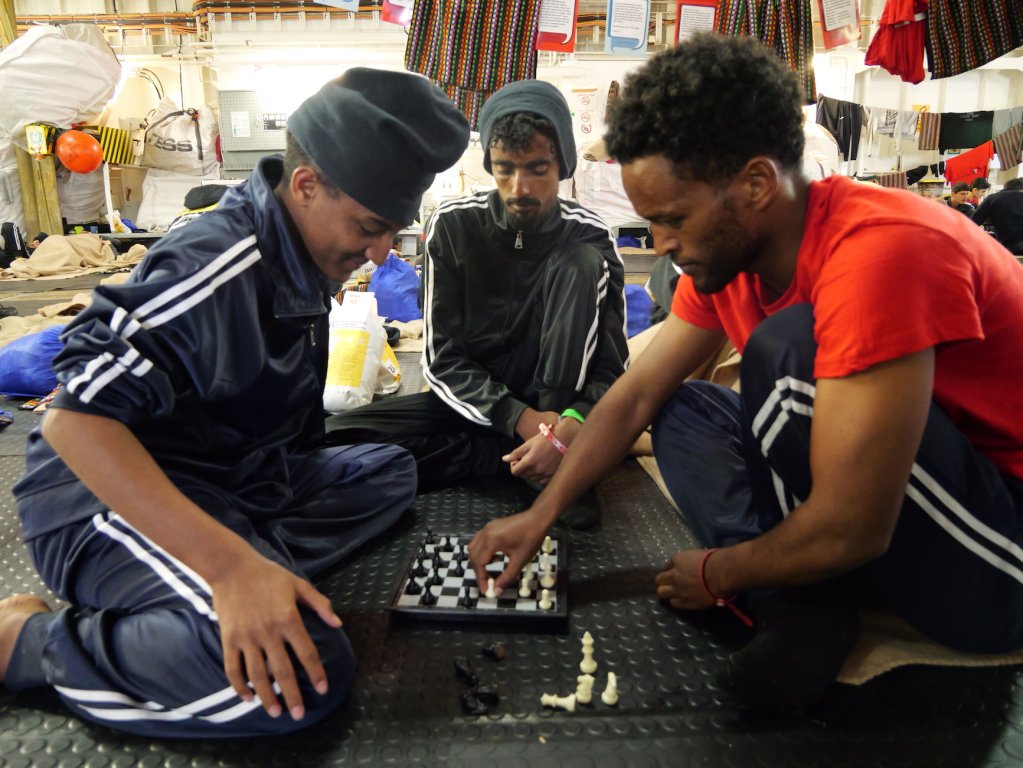
"It's not international best practice, but there also isn't a law forbidding it…from UNODC's perspective…the smuggling protocol specifically says states shouldn't hold migrants accountable for having been smuggled — the criminal actor here is the smuggler and not the migrants themselves," Healy said. In addition to facilitating irregular entries into Libya, smugglers facilitate irregular accommodation and document fraud for the purpose of smuggling, she added.
"So what you have then in practice is North African and EU imposed or encouraged policies that prevent irregular departure," though under international law people cannot be stopped from leaving a country. "But that's what's happening and that's massively increased in the last three-four years."
Why migrant abuse prevails despite global awareness and international law
Detention and associated crimes against migrants and refugees are not only in breach of international law, but are "extensively documented," West from the ECCHR told InfoMigrants. A combination of factors in Libya, Europe and the international arena are fueling the unlawful detention of migrants.
"In Libya today, characterized by high political instability and uneven governance, these detentions form part of a conflict economy in which various actors — Libyan authorities, militias and criminal entrepreneurs alike — all profit from the prevailing system of migrant and refugee commodification and abuse," West explained.
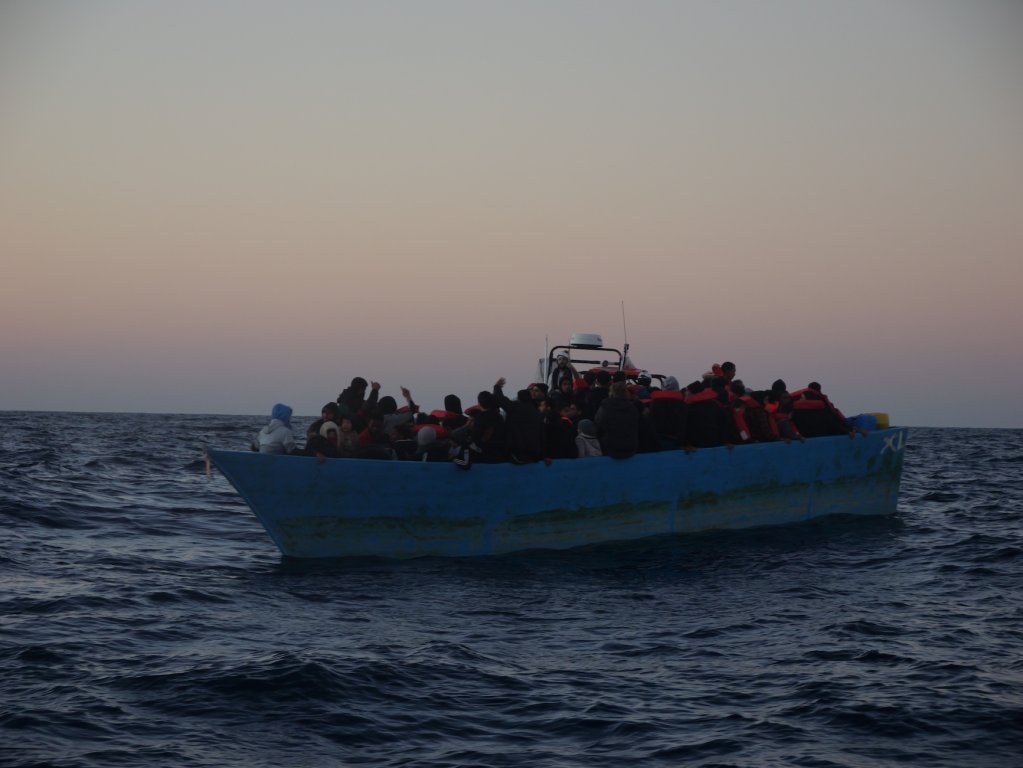
"Driven by the politically expedient desire to limit the number of migrants and refugees arriving to European shores, the EU and its member states have enacted policies aimed at containing migrants and refugees in Libya, despite being fully aware of the crimes committed against them there," she added.
Through changing interactions between European and Libyan actors, European countries and agencies incentivize and participate in practices that lead to Libyan authorities and non-state entities preventing migrants and refugees from fleeing Libya by sea or intercepting and returning those who do, according to West.
The legal advisor highlighted that the lack of safe and regular pathways for migrants to seek protection in Europe, combined with the reduction of European state-led sea rescue efforts and the criminalization of sea rescue NGOs operating in the Mediterranean, has contributed to an increase in deaths at sea. Additionally, she believes these factors have led to more interceptions and returns of migrants by Libyan authorities.
"At domestic, regional and international levels, widespread impunity for the well-documented crimes against migrants and refugees in Libya and the Mediterranean undoubtedly contribute to their perpetuation," West stressed.
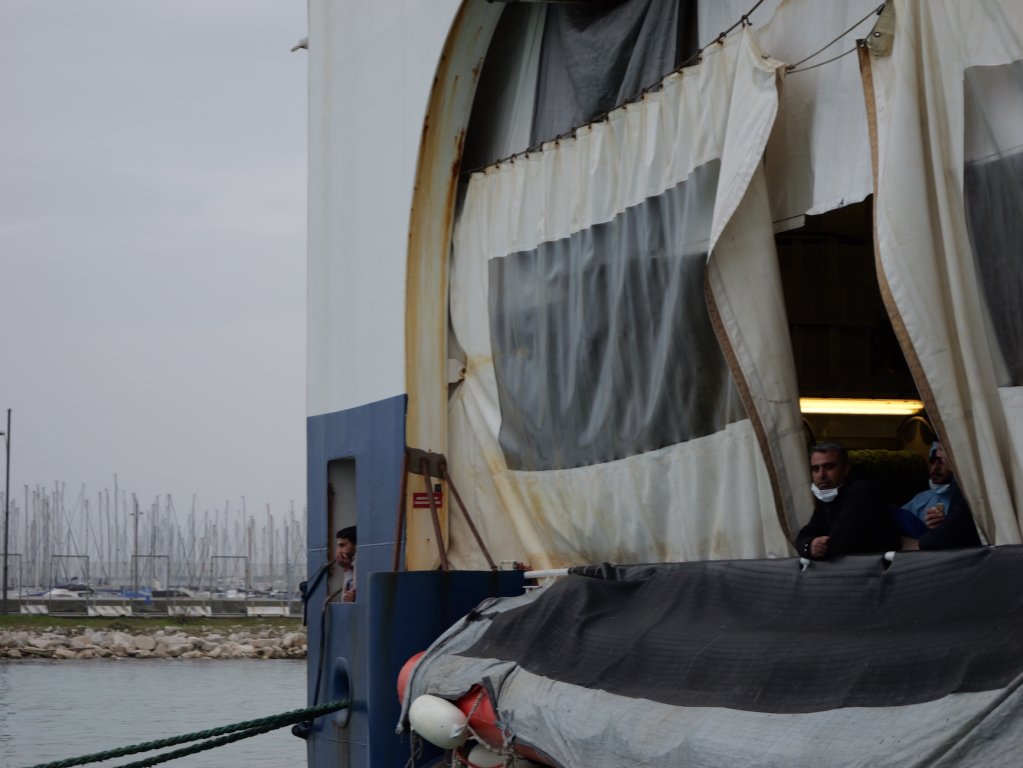
Crimes against migrants classified as smuggling, ignoring crimes against humanity
Since 2011, the International Criminal Court (ICC) has been investigating crimes against humanity and war crimes in Libya, following a referral from the United Nations Security Council.
In 2021 and 2022, the ECCHR worked together with survivors and partners to submit two reports to the ICC, West said. These reports detailed crimes that were allegedly committed against migrants and refugees, focusing on abuse in Libyan detention centres as well incidents involving the interception of migrants at sea.
However, "To date, the ICC has failed to open a concrete case into crimes against migrants and refugees in Libya and the Mediterranean," said West. National jurisdictions typically only prosecute crimes against migrants as smuggling or trafficking crimes, which "erase their systematic nature and gravity as crimes against humanity."
"Relying on prosecutions by domestic authorities instead of the ICC also impedes much needed accountability for high-level perpetrators whose immunities could bar their prosecution in national courts, including European officials," West explained. "Despite ample evidence pointing to the co-perpetration of crimes between EU and Member State officials and Libyan authorities and militias, the ICC Prosecutor has failed to indicate whether any progress on such crimes is to be expected."
Are international organizations and the EU responsible?
According to West, the EU has a responsibility to ensure its policies, along with those of member states and agencies like Frontex, do not contribute to or worsen human rights violations against migrants in Libya and the Mediterranean.
"EU Member State and agency officials are often co-perpetrators or complicit in interceptions of migrants and refugees at sea and their return to detention in Libya where they re-enter a cycle of exploitation and abuse amounting to crimes against humanity," she told InfoMigrants.
"The EU must stop such forms of collaboration with Libyan actors and ensure accountability measures for dealing with such violations... They should also provide adequate safe and legal routes by which people can enter Europe, ensure access to individual asylum procedures, and establish a comprehensive state-run sea rescue initiative to guarantee the human rights of people on the move at sea," she said.
But for Healy from the UNODC, it is important to remain engaged with Libyan authorities.
"You have to look at the alternatives...working for the UN, I believe in multilateralism, which means that you keep engaging," she said.
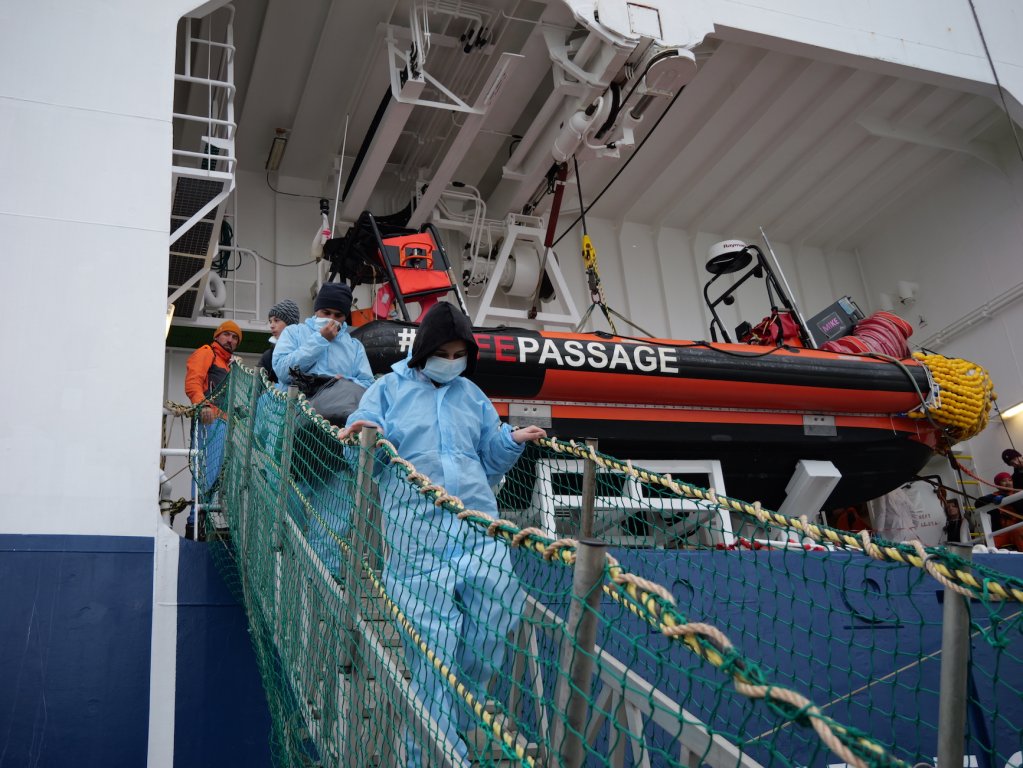
West agrees that United Nations entities should play an important role in applying diplomatic pressure on Libyan and EU Member States to uphold their international obligations.
The legal advisor also calls on the ICC to investigate and prosecute crimes against migrants, ensuring that impunity for such crimes does not persist or contribute to their perpetuation. The Hague-based court is "the only possible avenue for breaking the cycle of impunity and assessing the individual criminal responsibility of high-level perpetrators," she said.
Read AlsoInfoMigrants exclusive series: Bulgaria
Absence of regular and efficient migration pathways fuels corruption and people smuggling industry
Within UN agencies, "there are checks and balances," said Healy from UNODC. "I'm not saying they work perfectly, but there are checks and balances against corruption."
But when it comes to the national government, "it's beyond the UN's mandate."
"They have to do it themselves… … So what UNODC and other UN agencies do is conduct training" to prevent corruption and collaboration with migrant smugglers among state actors.
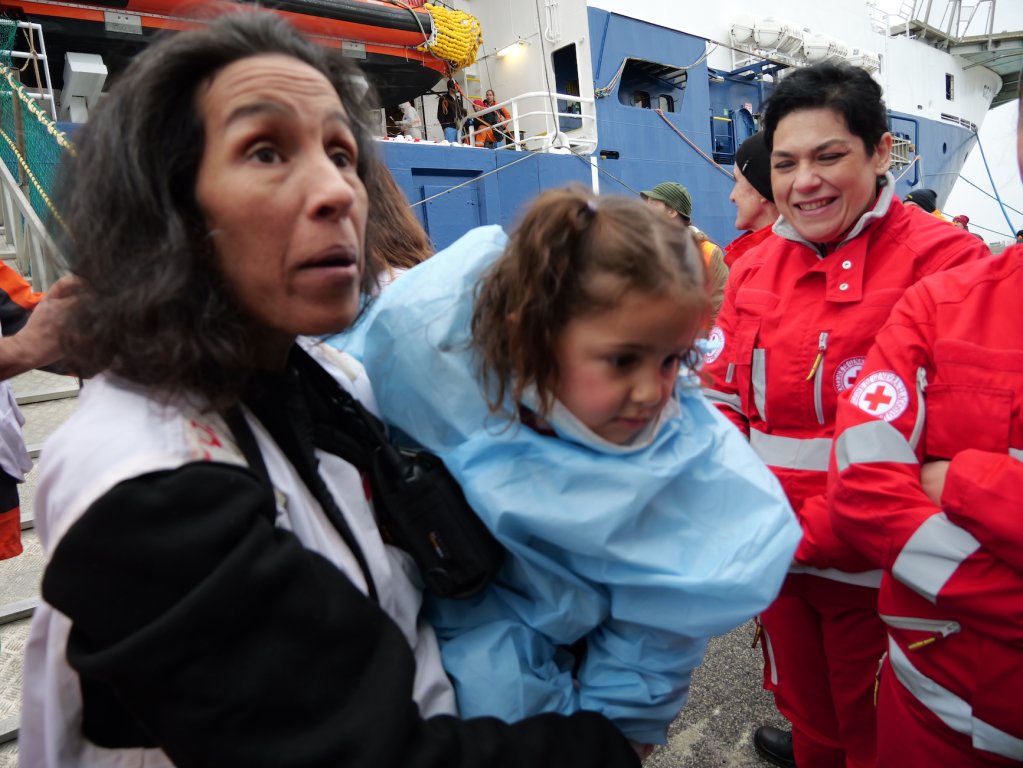
The UNODC also conducts training with the Libyan coast guard on human rights compliance work, Healy said.
But as long as there are no regular migration pathways paved for nationalities from unsafe countries, "the demand for smuggling still exists, even if you try to dismantle one network."
*This series is based on an investigation conducted between February and May 2024 across Germany, Italy, and the Central Mediterranean. The investigation included a period on board the Médecins Sans Frontières (MSF) search and rescue ship, the Geo Barents, from January 30 to February 10. InfoMigrants was unable to independently verify the personal testimonies provided by migrant individuals.
